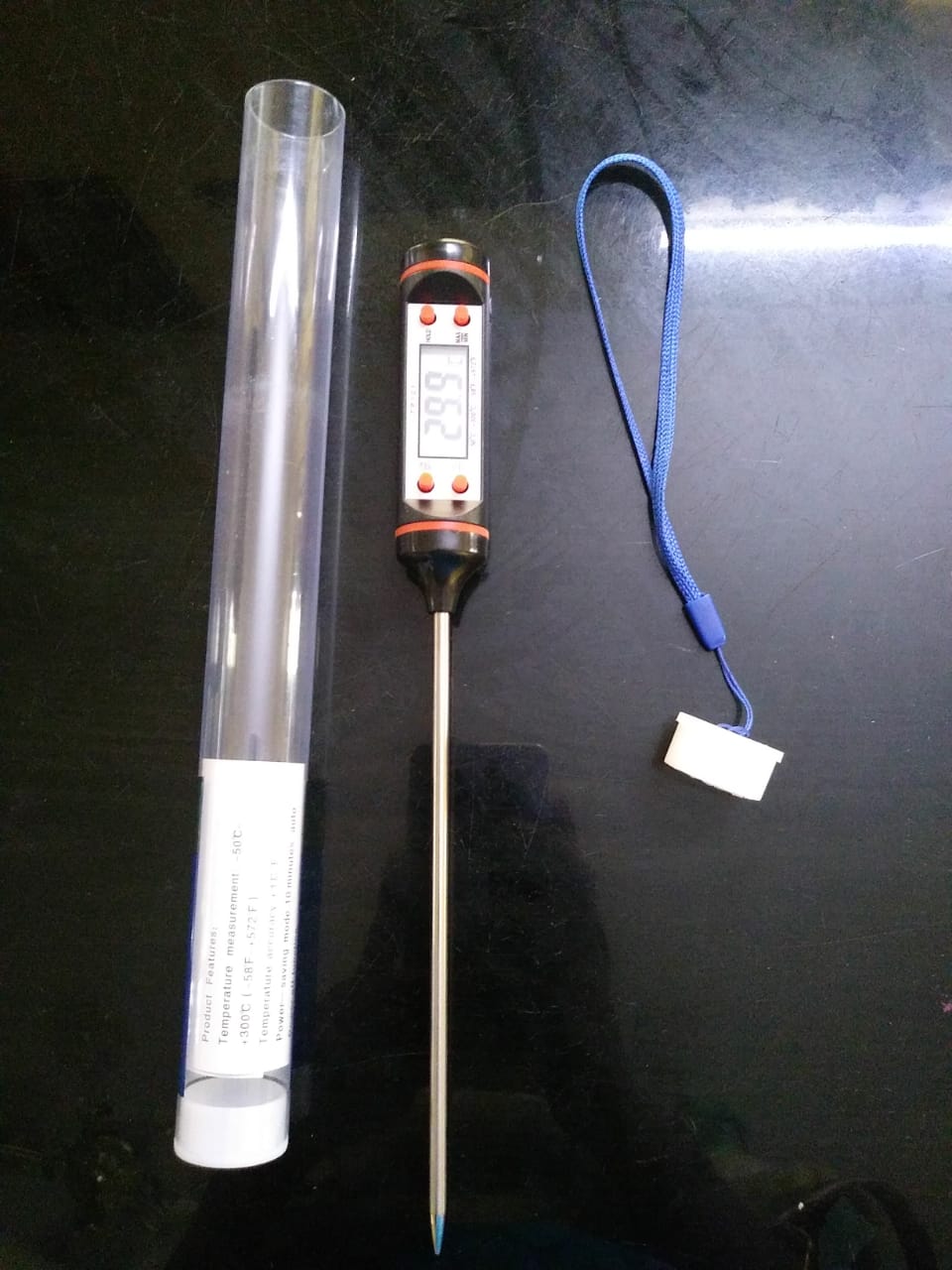
2024-11-27T12:54:02
A thermometer is a device that measures temperature (the hotness or coldness of an object) or temperature gradient (the rates of change of temperature in space). A thermometer has two important elements: (1) a temperature sensor (e.g. the bulb of a mercury-in-glass thermometer or the pyrometric sensor in an infrared thermometer) in which some change occurs with a change in temperature; and (2) some means of converting this change into a numerical value (e.g. the visible scale that is marked on a mercury-in-glass thermometer or the digital readout on an infrared model). Thermometers are widely used in technology and industry to monitor processes, in meteorology, in medicine (medical thermometer), and in scientific research. A standard scale Main articles: Temperature and Temperature measurement See also: Scale of temperature While an individual thermometer is able to measure degrees of hotness, the readings on two thermometers cannot be compared unless they conform to an agreed scale. Today there is an absolute thermodynamic temperature scale. Internationally agreed temperature scales are designed to approximate this closely, based on fixed points and interpolating thermometers. The most recent official temperature scale is the International Temperature Scale of 1990. It extends from 0.65 K (−272.5 °C; −458.5 °F) to approximately 1, 358 K (1, 085 °C; 1, 985 °F). History See also: Timeline of temperature and pressure measurement technology Sparse and conflicting historical records make it difficult to pinpoint the invention of the thermometer to any single person or date with certitude. In addition, given the many parallel developments in the thermometer's history and its many gradual improvements over time, the instrument is best viewed not as a single invention, but an evolving technology. Ancient developments Early pneumatic devices and ideas from antiquity provided inspiration for the thermometer's invention during the Renaissance period.

Have a question? Ask here!
Required fields are marked *